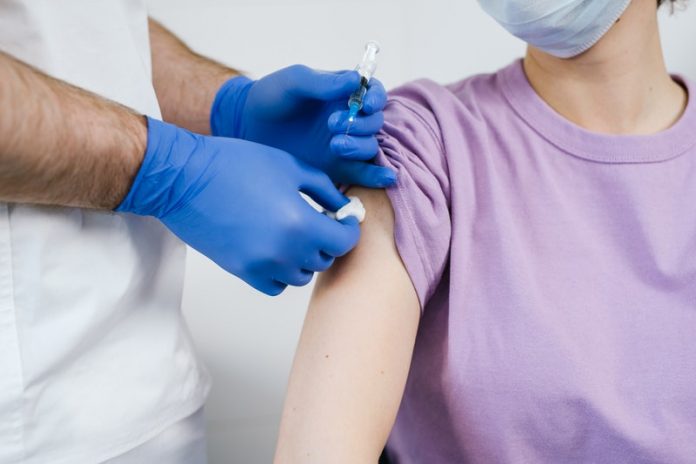
In a new study from NIH, researchers found in adults who had previously received a full regimen of any of three COVID-19 vaccines, an additional booster dose of any of these vaccines was safe and prompted an immune response.
The findings served as the basis for recommendations by the FDA and the Centers for Disease Control and Prevention in late fall 2021 to permit mix-and-match COVID-19 booster vaccinations in the United States.
The new report describes findings from 458 adults who had been fully vaccinated with any of three EUA COVID-19 vaccines at least 12 weeks prior to enrollment and who had no reported history of SARS-CoV-2 infection.
At enrollment, a single booster dose was administered to each participant: 150 received Janssen/Johnson & Johnson’s Ad26.COV2.S vaccine; 154 received Moderna’s mRNA-1273 vaccine; and 154 received Pfizer-BioNTech’s BNT162b2 vaccine.
Depending on which primary vaccine regimen a participant had received, the booster vaccine was either different (mixed, or heterologous) than or the same (matched, or homologous) as the original vaccine.
More than half of the participants reported headaches, pain at the injection site, muscle aches and malaise. No serious vaccine-related adverse events were reported.
All combinations of primary and booster vaccines resulted in increased neutralizing antibody levels.
Taken together, these data strongly suggest that the booster vaccine will increase protective efficacy against COVID-19 infection.
These interim results cover available immunogenicity data through the initial 29 days following booster vaccination.
Investigators will continue to follow participants for one year to assess what impact booster vaccination has on longer-term immune responses.
If you care about Covid, please read studies about how COVID-19 harms the brain, and COVID-19 pills that could change everything.
For more information about health, please see recent studies about drug that could help treat lung damage in COVID-19, and results showing that lowering insulin levels could reduce your COVID-19 risk.
The study is published in The New England Journal of Medicine. One author of the study is Robert L. Atmar, M.D.
Copyright © 2022 Knowridge Science Report. All rights reserved.




